The Mutual Learning of Civilizations and Foreign Literature Studies: The 4th Foreign Literature Summit Forum was recently held at the Southern University of Science and Technology (SUSTech).
Fengliang LI, University Council Chairperson; Yongming ZHOU, Director of the Center for Social Sciences at SUSTech; Zhongyi CHEN, Distinguished Professor at Hunan Normal University; Weiping LI, Secretary-General of the Expert Committee of the China University Alliance for the Development of Foreign Language and Literature Discipline (CUAFLL), and nearly 80 experts and scholars from more than 40 well-known domestic universities, research institutions, and publishing houses participated in the forum.
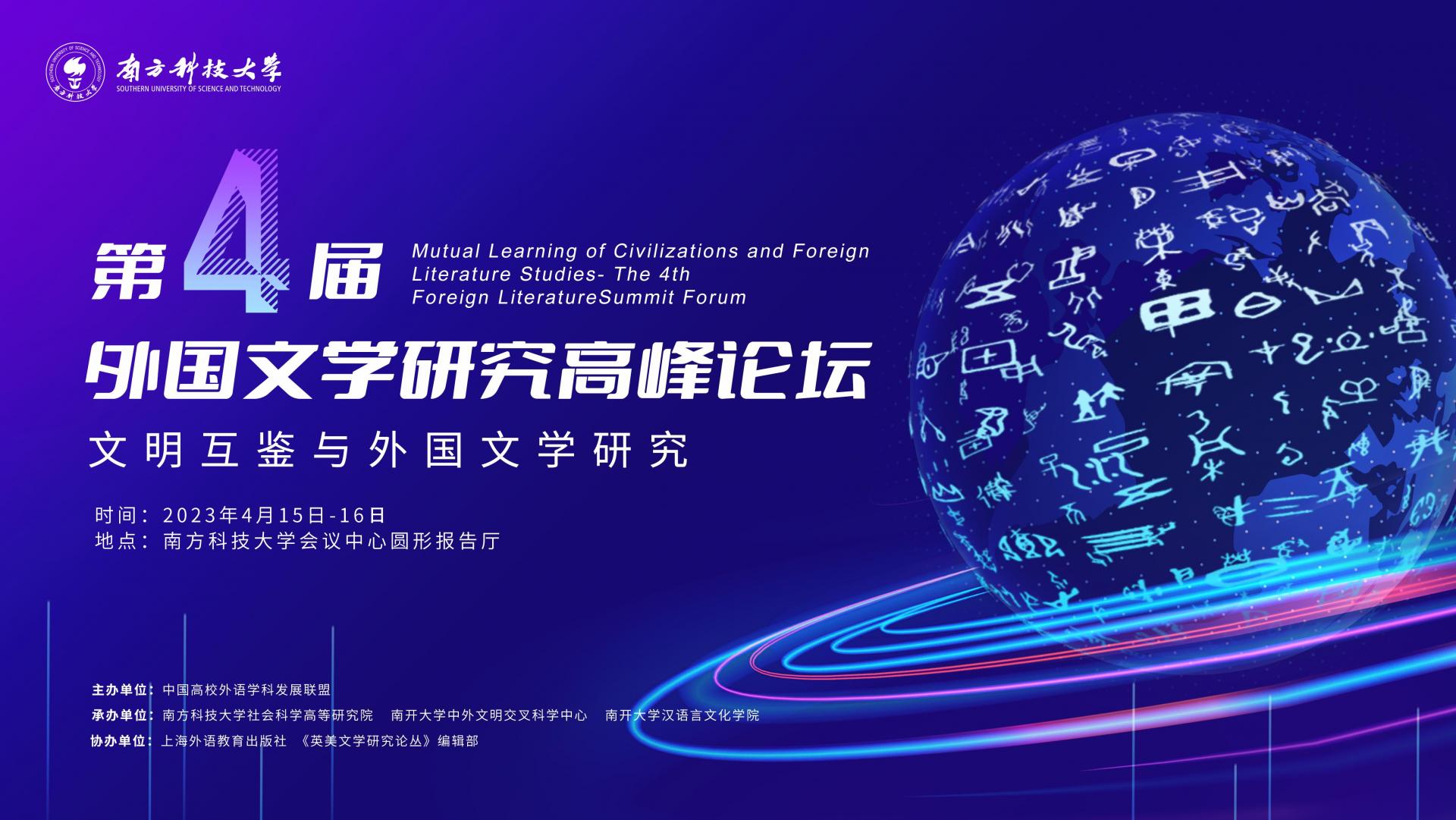
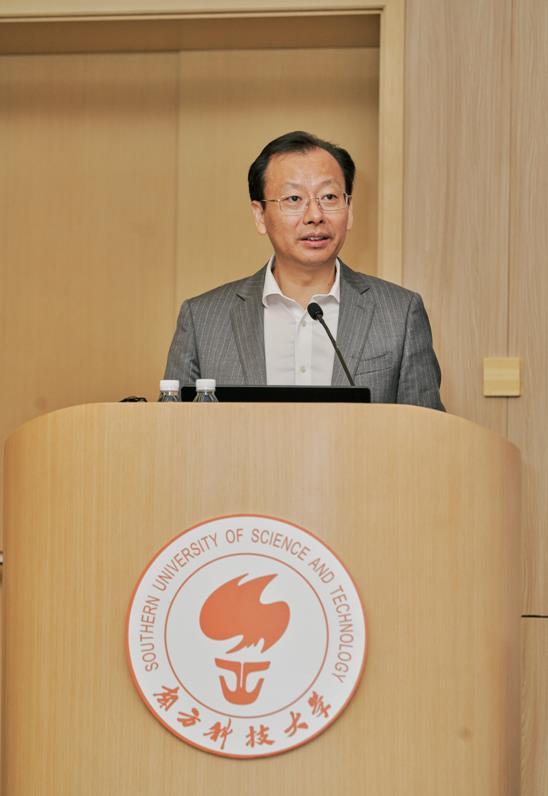
In his remarks, Chairperson Fengliang LI highlighted some of SUSTech’s achievements in reforming the university governance system, faculty recruitment, talent training, and developing disciplines.
He emphasized that the development of new liberal arts is important for SUSTech’s growth in becoming a world-class new research university. He noted that in the window of opportunity of the “dual-zone drive”, SUSTech has taken on the role of developing science and technology and highlighting humanistic education.
Chairperson LI hopes that Nankai University and SUSTech will take this forum as an opportunity to carry out multiple exchanges and cooperation, and promote the co-construction and sharing of research on the integration of humanities and science and technology.
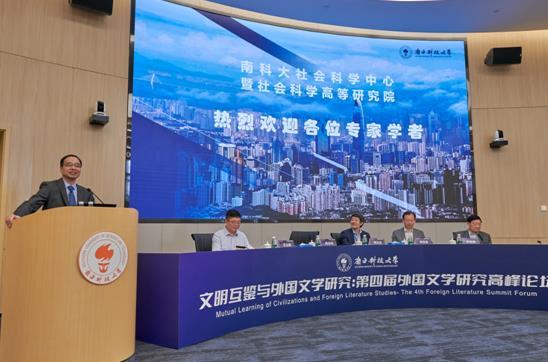
Yongming ZHOU introduced the positioning and vision of the Center for Social Sciences at SUSTech. He pointed out that the Center advocates academic innovation and interdisciplinary research, and focuses on the layout of a cutting-edge liberal arts research matrix, which has gained influence and advantages in cultural heritage, urban studies, new media, science and technology, and social studies.
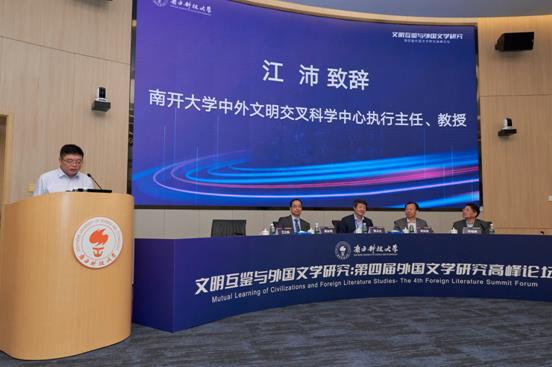
As one of the co-organizers, Pei JIANG, Executive Director of the Center for Global Civilizations of Nankai University, sent a letter expressing his gratitude to SUSTech for organizing this forum.
He outlined that this meeting promotes not only exchanges between Chinese and international partners, but also an academic response to the era of mutual learning among civilizations. He added that they should strive to seek innovative academic thinking to reveal the differences and complementarities of Chinese and foreign civilizations, and make efforts to build shared values for society.
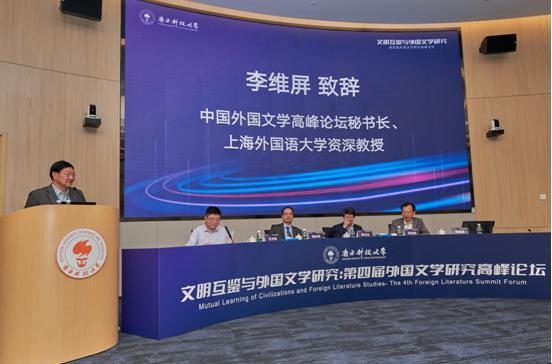
Weiping LI also delivered a speech on behalf of CUAFLL. He said that mutual learning among civilizations is a bridge for scholars to communicate, and it is also the humanistic basis and academic perspective for the study of foreign literature.
He discussed understanding the relationship between the mutual learning of civilizations and the development of world literature, and what civilizational elements exist in Chinese and foreign literature with a mutual reference value.
The forum featured 20 keynote speeches and four sub-forums. Senior experts and leaders in related fields focused on exchanging and integrating Chinese and foreign literature and civilizations and mutual learning. Almost 50 scholars shared their views on their own exploration fields and reflected on their long-term thinking on related issues.
Lixin WANG, Chair Professor of the Center for Social Sciences at SUSTech, presented an academic summary report at the closing ceremony. He said this forum had built an important platform for dialogue between Chinese and foreign literature and civilizations, academic speculation, and cultural exchanges in the context of mutual learning between civilizations.
Proofread ByYingying XIA
Photo ByCenter for Social Sciences